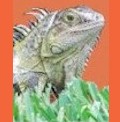Proper nutrition is probably the most important factor, besides habitat, in determining whether or not you will have a healthy pet iguana. Iguanas require a balanced diet of fruit and vegetables, and lots of them to keep them healthy. Also what most people do not know is that, unlike most other reptiles, iguanas are strictly vegetarians. This means that they do not eat bugs, insects or any other animal matters whatsoever.
While most iguanas are herbivores, there are a few in the wild who are omnivorous. These are usually terrestrial dwellers who eat wax worms, meal worms, and other insects from their surroundings. Their forest and tropical cousins, however, are strictly herbivorous, eating flower buds, leaves, fruits, and in some cases seawater algae.
When owning a pet iguana, it is imperative that feeding is done correctly. Too much feeding can lead to obesity or bloating whereas lack of nutrients and a proper diet can cause diseases. This can happen quite easily and an owner must always be aware of any signs of illness in his pet.
If you notice that your iguana is sick, bony, fat, or has swollen jaws it most probably has contracted Nutritional Secondary Hyperparathyroidism or Metabolic Bone Disease, both of which can be caused by improper diets and lack of sufficient nutrients. Lack of sunlight can also contribute to the contraction of these diseases.
These diseases if left untreated can lead to deformities and fractures in the bones as well as make them very brittle. In some cases they can even cause death. Therefore, you must ensure that your iguana is receiving a well balanced diet with a good amount of calcium and phosphorous and adequate exercise in order to keep it healthy and disease free.
Follow these simple guidelines when feeding your iguana and you are guaranteed to have a happy and healthy pet for years to come.
